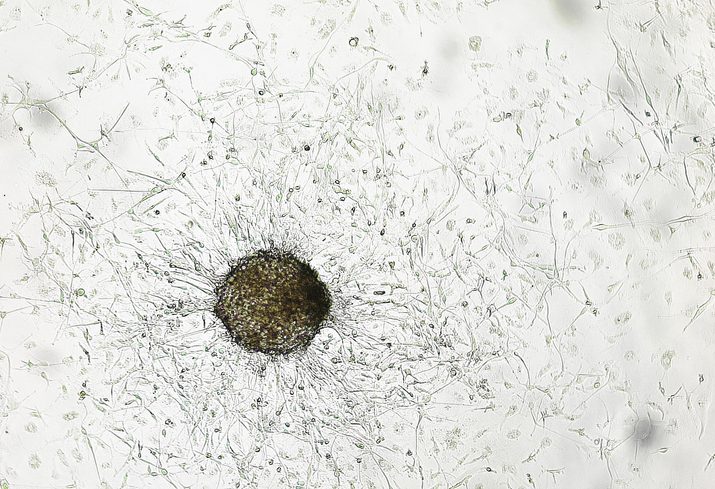Spiro Rombotis, CEO of Cyclacel Pharmaceuticals, on Innovative Targeted Therapies for Advanced Cancer
By Rob Dillard - Last Updated: April 27, 2023DocWire News recently talked to Spiro Rombotis, CEO of Cyclacel Pharmaceuticals, Inc., a company developing innovative therapies that target various phases of cell control for treating advanced cancers, among other serious diseases. Mr. Rombotis discussed the strides his company is making in developing and testing targeted therapies that may actually drive cancer cells “to commit suicide.” Watch it all.
DocWire News: Can you provide us some background on yourself, and the company, Cyclacel Pharmaceuticals?
Spiro Rombotis: I’ve been in the drug industry pursuing drug development in cancer for over 35 years. I’ve worked for two pharma and two biotech companies in my career before joining Cyclacel, primarily because of the fantastic science developed by this company’s founders, two of the world’s top academic scientists in the area of cell cycle biology. The company has been busy putting the insights of those two scientists into chemistry and biology efforts to produce medicines, ideally given by mouth as well as intravenous injection. I can realize their promise, which is to give to cancer patients a chance to live their lives in a normal way, like diabetic patients do by controlling insulin.
Why are CDK2 and CDK9 of particular interest to Cyclacel?
These are the two targets proposed by the company scientific founder, Professor David Lane. He was interested in those two enzymes because they could regulate the body’s own ability to teach cancer cells to commit suicide in a program called apoptosis. A few years after the company was founded by David Lane, the Nobel prize was awarded in 2001 for the discovery of CDK enzymes and the regulatory proteins called segments. So this is a very important area of science that he went after. 2/9 is a subset of this field of agents that can hit CDKs 2 and 9.
Can you tell us about the work you are doing with fadraclib as an inhibitor of CDK2 and CDK9?
Now, first of all, this is a drug that hits both of these targets. For many years, the industry has been trying to drug either CDK2 or CDK9, and there are issues with our approach, primarily what we call redundancy, which is a fancy word to say that the cancer cells are very smart, and they find ways to overcome the activity of the drug only after a single enzyme. David Lane’s experiments early on before Cyclacel was founded in our own work in the clinic, as well as many other authors in the years that have intervened, have shown that hitting both of these enzymes is more effective, more optimal, if you want, than hitting either of them alone. Essentially, when a cancer cell has progressed to the point that if the generated its code contains mistakes that can be communicated to daughter cells, many of the own circulatory mechanisms of the body are dysfunctional or absent. By inhibiting both CDK2 and CDK9, we can reinstitute these mechanisms, what we called just a minute ago programed suicide, and engage those anti-cancer mechanisms if you want to stop working and induce the cancer cell to commit suicide.
What are the next steps and milestones for fadraciclib?
Well, we have shown in Phase I studies that were conducted at Dana-Farber Cancer Center in Boston and MD Anderson Cancer Center in Houston that this drug can induce, as a single agent, convincing anticancer activity. We have patients, for example, with ovarian cancer and endometrial cancer which has shown comprehensive reduction in tumor size. One of those patients actually has reduced 100% of her tumor size and has been on study for more than two years, which also makes the point that the drug can be tolerated. So having shown this results and also at a large cancer conference in October of last year, 2020, we showed that the drug can be given as effectively orally as it is intravenously.
So for this reason, our medical team has designed a mid-stage trial, which is about to get underway that we’ll test it as an oral drug as a capsule patients can take by mouth in several types of solid tumors. These studies will include patients with all the women’s cancers, ovarian, endometrial, and uterine, as well as breast, but also other cancers, like colorectal, where there is recent data suggesting that CDK9 and CDK2/9 inhibitors would have promise, as well as certain types of lymphoma that are known to be very sensitive to this type of cancer biology mechanism.
About by later on in the summer, we expect within a few weeks to open a parallel study, this time in leukemia patients. This could be a similar protocol, not identical though, but it will have also a Phase I/II design, which means that it can be potentially useful for registration if we’re able to show enough persuasive data to convince regulators to give us access to an early approval mechanism.
What are Cyclacel’s other clinical programs in development?
In addition to Fadraciclib, which is about to start mid-stage development as an oral drug, we have another oral drug called CYC140. 140 is a PLK-inhibitor. PLK stands for polo-like kinase inhibitor. It is the area of scientific interest of the other academic founder of the company, Professor David Glover. Professor Glover discovered the entire polo mechanism years ago as the chairman of genetics in the University of Cambridge in England. Like I said, he is about drug discovery centered around one of the five enzymes that are part of this mechanism called PLK1. So PLK1 is important for several tumors, in particular, tumors that are dependent on the KRAS oncoprotein. KRAS represents a bit of a holy grail in the oncology drug development industry. It’s not known to be druggable. Recently though, the FDA approved the drug from another company for KRAS non-small cell lung cancer, and therefore the opportunity has now arisen to bring other mechanisms, other drugs, like PLK1 to address a multitude of KRAS dependent cancers, such as colorectal cancer, but then surely cancer of the pancreas, and many others.
So Cyclacel is one of very few companies active in the PLK1 inhibitor field. We have a drug in Phase I, which showed early promising activity in leukemia patients. We’re now about to recapitulate those findings in a study in mid-stage development for solid tumors. And then later on towards the end of the year, also studying leukemia patients.
Any closing thoughts?
Well, first of all, that we are the leader in the class of CDK2/9 inhibitors. We’ll call them transcriptional, which is a fancy scientific word for saying that we can engage the body’s own suicide program. On the other hand, many companies who are following us have not yet shown either clinical activity, especially in patients with solid tumors, which are the most difficult standard, let alone suppression of the relevant biomarkers, which are important to show early on in clinical development to demonstrate that the drug actually hits the mechanism we purport it hits. We estimate that we’re at least 2 years ahead of our closest competitor. So this is getting to be a busy field, as many companies are realizing how promising it is. If we’re successful, we’ll have a chance to be first to market, which has dramatic commercial implications for a small business like Cyclacel.







 © 2025 Mashup Media, LLC, a Formedics Property. All Rights Reserved.
© 2025 Mashup Media, LLC, a Formedics Property. All Rights Reserved.